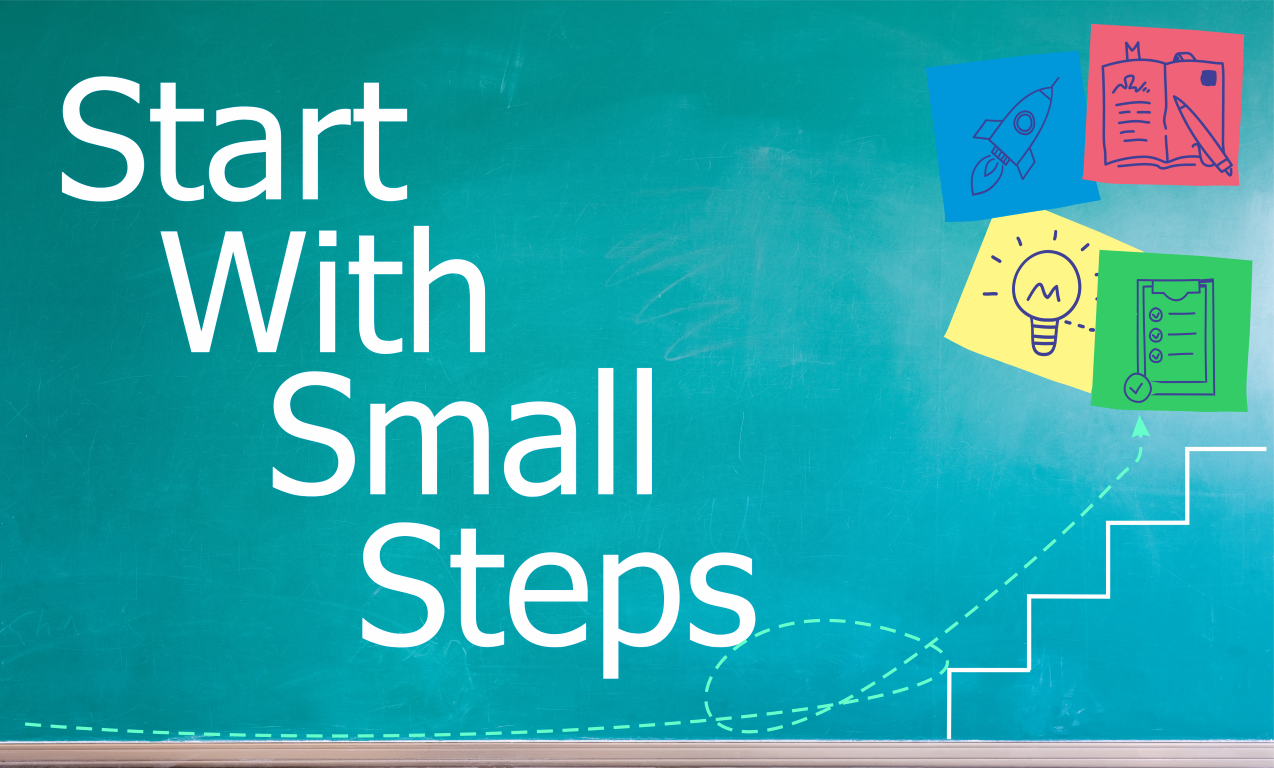“You miss 100% of the shots you don’t take.” Wayne Gretzky.
Today we’re going to talk about how to get into the proper framework when you’re going to have a challenging conversation. Previously, we talked about how to have an excellent tough conversation. Now we’re going to say how to get ready for it. What do you need to do ahead of time to ensure your brain is in the proper place to make this conversation properly.
So if you have a challenging situation, the first step is just accepting that this will be tough. It just is. As soon as you start getting comfortable with that, it will help you stop being so defensive and not be so worried about the conversation. Having a conversation that you just know will be tough, and it’s making you stressed out. You feel nervous. You’re upset about those things. Instead of thinking about how this conversation will be wrong, try to re-frame it into “my boss and I are going to come up with alternative solutions.” “This is going to be great because now is going to give me a clear path to knowing what it is I need to do.” Reframe the situation so that you can give it a better construction, give it a more positive light, and help you in the future Instead of focusing on that really tough hour or that really tough conversation you’re going to have.

Then venting, talking to your best friend, or talking to your parents or someone close to you about this conversation and just letting it all flow out of you get it out of your system, all the destructive emotions, all the anger, whatever’s riling you up. Just get it out. Because as soon as you do that, it will leave your system for the most part. It’ll be cathartic. It’ll be less likely to come out when you’re actually having the conversation.
One thing I like to do whenever I’m training customers, or I’m going to have a tough conversation, is I try to remember my first few lines. I will go through and repeat what the first 5-10 minutes of the conversation might sound like. So I have a down in my head. Conversations or training or anything difficult is always tough at the beginning. If you can get at least the first three to five lines memorized in your head about what you’re going to say. Usually, the conversation goes much more smoothly After that point.
Make sure you get a good night’s sleep or take a nap. If this conversation is happening later in the day, you want to be sharp. I know it’s sometimes hard to sleep, especially if you’re going to have a tough conversation, or you’re going to negotiate for a raise, or you’re going to talk to your spouse about something. But try the best you can to get a good night’s sleep.

If this event is going to be first thing in the morning, the next day, try to lay stuff out ahead of time, you’re going to go to work, and you’re going to have this tough conversation, pack your work bag ahead of time, bring some snacks, wear the right clothes, but get everything laid out ahead of time. So that you’re not thinking on this very stressful day, typically, on a very stressful morning, all these little details. It’s gonna be stressful enough.
This one’s important to me, pick the right time of day. If you’re going to have a tough conversation and not a morning person, don’t schedule them for the morning. Make sure that you’re doing this in the time of day, that’s particularly good, not just for you, But for the other person too. You know you want to make sure that this conversation is successful for everyone involved in it. My friend, who’s a morning person, says that she loves to do things very early because she’s not worrying about it all day long. And I absolutely get that. I think that’s an excellent point Because if you make a stressful conversation, and you do it in the afternoon, sometimes it does cause you to worry. I know personally, I’m not very good in the morning. But you’ll have to figure out what’s suitable for both parties.
If you’re going to talk to someone, it’s best not just to plop into their office or ambush your husband the second he comes home. So how was your day? Can we talk about something that’s been annoying me lately? You know you do that to people? Because you’re looking for the right time to have a conversation. Why don’t you give that other person the opportunity to find the right time for that conversation? “Hi, honey, I have something that I really need to talk to you about. It’s been pretty stressful for me. I’d love to get it off my chest and see what you think about it. When would be a good time for us to talk about it? This just has to do with how we divide the chores. I don’t want you to worry. We’re fine. Everything’s fine. We just need to talk some things over.” If you want to absolutely destroy me as a human being. Just come up to me and say, “Hi, Jill, I’d like to talk about something stressful. Can we come up with a time at the end of this week to talk about it?” I will think of nothing else until that meeting.
If you are scheduling something with your spouse, with your boss, with your co-worker, whoever it is that you give them a little bit of an idea what this is about. ” something’s just been really bugging me about how we break up the chores in the house. I’m wondering if later this week, we could talk about maybe a different plan in place of how we do that” you know, something so that that person is not freaking out. You don’t want to scare people.
And what happens is, as you start this process of trying to negotiate, just think back to the times when you’ve been successful in your life. You have been successful in your life in dealing with things. Whether it was when you were a kid, with your parents, or with professors in college, you have had successes. You might not be able to think of them off the top of your head, but they’re there. So if you can remember, I’ve done this before, I’m good at this. I can win on these types of things. It’ll help you feel more confident when you go into a negotiation. Or if you ask the question, how have I successfully handled this kind of situation in the past, which might be a tough conversation that you had with someone, whether it was a friend or a co-worker. But again, trying to do that.
And then to pump yourself up, Alexandra Carter says, play some Rocky-style music in your head or out loud, and then imagine what posture you’re in. what location you’re in. make sure you get that joy, that exhilaration so that you feel pumped up and ready to go. Think about if you’re going to get a raise. Imagine that money for the first time coming into your bank account. Or if you’re asking for a promotion, the first time you get to your new office, try to focus on the exhilaration of what it is you’re trying to get. And even if, in the end, the success of your negotiation is quite different than what you actually got, you know, still put excitement into your attitude.
Also, make sure that you eat a good meal that day before your negotiations. You eat a good breakfast. You eat a good lunch, have some snacks. I find that if I’m having a very tough day, my metabolism, which isn’t particularly significant, will suddenly go into overdrive, and I will burn through meals like crazy. And if I start running low on blood sugar, I actually begin to feel jittery, which gives me the impression I’m nervous when I’m just a little bit hungry. Being hungry or having low blood sugar can give you this feeling that you’re scared. So make sure that at least on that day, you eat enough to make sure that you do great in your negotiations, even if it’s a little bit more than what you usually eat.
And make sure that you get a chance to exercise. It’ll help you burn off that excess energy.
Ensure that you spend time maybe the night before or during that day with someone you like or someone you love and have a good laugh.

If you have a mentor, this would be a great time to bring them in and help you work through these negotiations. Sometimes, unfortunately, your boss can be a mentor to you, Making it a little bit difficult. But if you can find a mentor who’s not involved in this particular situation, then bring them in private so that you can talk about that.
One thing I always like is the power pose by Amy Cuddy. And that’s where you’re standing there like a superhero. And I like that. I think it makes me feel good. I love to do it Before I’m giving a speech or before I’m doing training. I don’t know if it’s because it’s a little bit of play-acting or if the power pose works just to make you feel powerful. But it helps me when I’m about to do something tricky.
Make sure that you make the commitment to yourself that you’re actually going to do this thing. I know for me, if I can avoid having any type of tough conversation at work or at home, I will just put it off. So scheduling it, actually getting something on the calendar, particularly with that other person on an invitation, will help you commit to doing it.
And then make sure you schedule something fun afterwards. You’re going to be jittery, you’re going to be nervous, this whole conversation is going to roll around in your head. And so, if you schedule something fun to do afterward, you’ll be able to burn off some of that excess energy and de-stress quite a bit.
Remind yourself that you have survived tough conversations before and that not only that, it made you better. Just remember that if you have this tough conversation, you’re going to be so much better at it in the future. Build those muscles.
Make sure that you play your favorite music or maybe a funny TV show, but something that gets your mind off of it. You can do dance around your house, burn off some of that energy and have some fun. It helps you get into that proper mindset.

Before making this very stressful conversation, I like to walk in nature. If I can get out and just go into a park or sit under a tree, it makes me feel a lot better.
And one thing that I try to tell myself all the time when I’m going to do something, I think is tough. I just tell myself, you know what, in an hour, this will all be over. I know a stressful team Now. by the time you look at your watch, and it says two o’clock, this is done. And that makes me feel better knowing there’s a place in time where this is done, And I don’t have to dwell on this anymore. Just remind yourself, this is actually a very short period of time.
I like to have a slogan when I’m going to either give a speech or do a negotiation or have a tough conversation. That’s something I just repeat in my head. Maybe you call it a mantra, perhaps you call it self-talk, whatever it is, but it’s something like you got this or remembered to smile. Make sure that you speak slowly. Whatever it is that you’re trying to get yourself to do in this particular situation, I just repeated in my head over and over again so that I can get there.
On the days where I’m going to have a tough conversation, whether at home or at work or someplace else, I make sure that I don’t get myself embroiled in any other drama that day. Before the conversation or after, I want to stay focused on the issue at hand during that day. I don’t want to get myself stressed out with other things. Likewise, after the conversation is over, I don’t want to have a tough conversation, And then an hour after that meeting, I have another tough discussion. I want to make sure that this is a day that I’m really just focused on this one issue.
Some ideas that I like to do that I learned from the app Headspace, which gives some advice on helping you to sleep at night when your brain is running away with you. These suggestions also work during the day. So the first suggestion is pushing away bad thoughts. What they do is they call this Noting. And so if you all of a sudden get this thought that pops into your brain, man, you’re just gonna screw this up to date, you have asked for raises before you’ve never gotten them. But what you do is you note that it’s there, and you identify “a thought,” “a fear,” “an emotion.” That way, it kind of pops like a balloon. As soon as you note a thought is floating around in your head, and you just identify it as a thought, it goes away. It’s fascinating. It’s an excellent technique for helping you sleep. But it’s also one from keeping negative thoughts out of your head when you’re trying to get yourself ready for a tough conversation.
And then there’s what they call square breathing. This is a relaxation technique they use for someone trying to sleep, but it also works for stress. And so that’s where you breathe in for four seconds, you hold your breath for four seconds, you breathe out for four seconds, and then you live in again. And then you just started again, and you go through this breathing process a couple of times until your stress levels drop again. But if you do it for a couple of minutes, it will help you regulate some of those negative emotions you have.

Happier.com suggests that when you’re having a conversation, particularly with a spouse, or someone in your family or friendships, first of all, they suggest not to say, “Can we talk?” That’s scary. I mentioned that before, think about how you’re going to start the conversation. Make sure that you stay on topic. Don’t try to manipulate the other person by saying, “Oh, can we go to a restaurant and have a good meal?” and then pounce on them at the restaurant. And they say you don’t immediately jump into the conversation when you’re doing this. If you set aside a certain time, like, let’s go to lunch tomorrow, let’s talk about this, mainly when it’s a personal relationship, You need to warm up the situation. How’s your day been so far? Oh, wow, this spaghetti looks fantastic.
https://www.happier.com/blog/5-tips-for-surviving-a-really-bad-day/
And the best advice they said is to know when to get help.
Also, be curious. You always want to take these types of situations and make them into curious experiments. Try to find out what’s going on with that other person. If you notice that your spouse has just been cranky every day after work, and you just can’t get a word in edgeways because they’re just blowing off steam. And it’s just been hard to deal with find out what exactly is going on. It may be that they don’t like what they do anymore. Or when they blow off steam, it helps them to forget the day, whatever it is. but make sure that you look for those curious questions so that you learn more
Summary
- Make sure you get a good night’s sleep, a good meal before your tough conversation, and that you pack all the essential things that you’re going to need that day so that you don’t have to worry about anything else But having a great conversation,
- Make sure you cheer yourself up by playing your favorite music, by playing the rocky theme. Whatever it is, that will get you excited to have this tough conversation. Make sure you burn off your energy. Dance around the room. Get some exercise or go for a walk outside. It’s essential to go in there with the proper mental framework.
- Identify harsh thoughts. Ensure that if your thinking goes astray, and you start having very negative thoughts that use the Noting system to push them away. Also, use breathing techniques to help you relax to be in the right frame of mind.
- Make sure that you don’t jump on the other person for the conversation. You warm them up. You talk about the fact that we’re going to have a tough conversation. But whatever you do, don’t just bring them out to dinner and then jump into the conversation without warning.
- Pick a good location. Pick the proper time of the day. Give yourself a mental phrase to repeat in your head. That is the most important thing that you need to remember in the course of this meeting. Be strong. Talk slowly.
- No one to get help, Whether that’s a mentor, a friend, someone to vent to, or professional counseling.
Challenge
Try to pick a day that is just going to be stressful for you. In general, you don’t even have to have a tough conversation. It’s just something that’s maybe not your favorite day. Try some of these packing techniques, playing happy music, going for a walk in the woods, or noting your negative thoughts. See if those are the kinds of things that will help clear your mind so that you’re in the right frame of mind to have your stressful day, your challenging day, or maybe just any day. But you want to start learning before you have these tough conversations. What really helps you to calm down, have a good outlook, and have the right energy.
Here’s our fun entertainment advice for the week. This one comes from Roadhouse.
“All you have to do is follow three simple rules. One, never underestimate your opponent. Expect the unexpected. Two, take it outside. Never start anything inside the bar unless it’s absolutely necessary. And three, be nice.”
Well, that’s a pretty good bit of advice. Make sure that you never fight in the bar.

